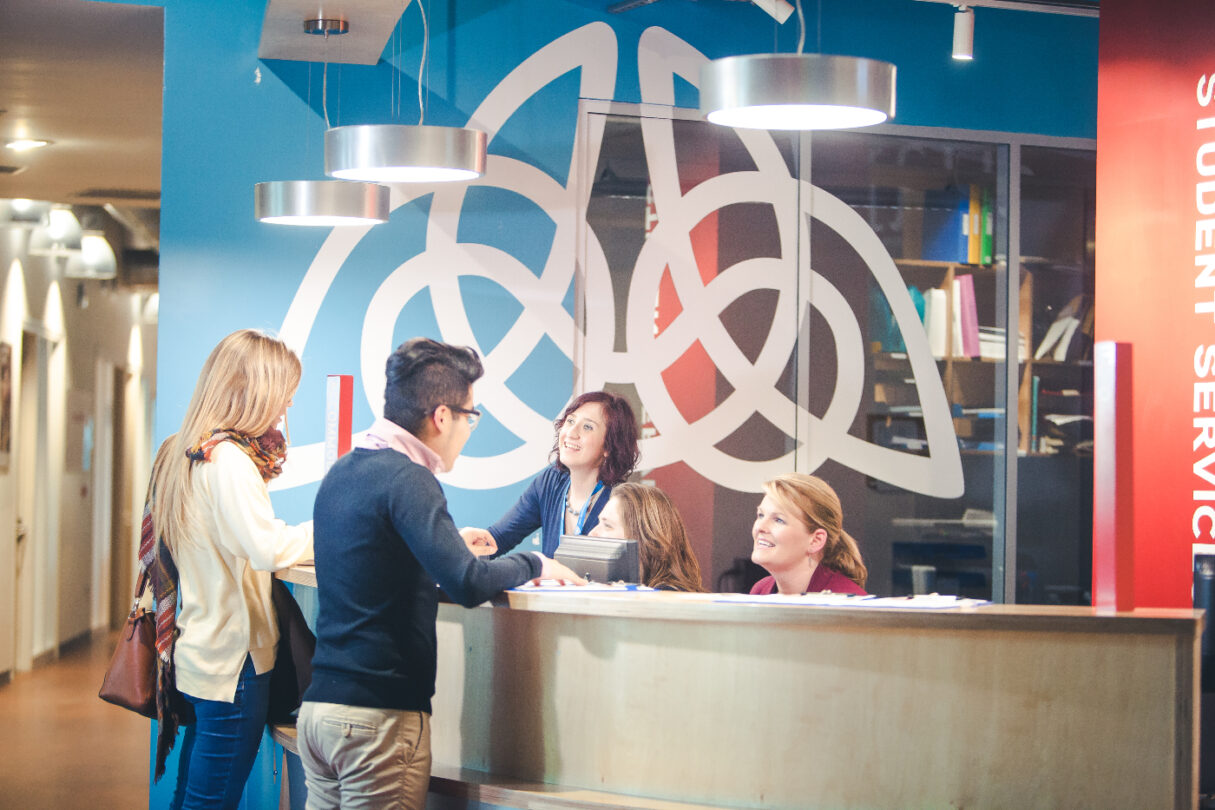Atlantic Language: ‘Coronavirus has taught us you can never be too prepared’
The CEO and founder of Atlantic Language talks about how the coronavirus outbreak affected his business and the steps he's taken to bounce back.

In our Your Story series, we speak to business owners about the challenges they’re facing and the steps they’re taking to overcome them. John Daly is the CEO and founder of English language school Atlantic Language. Here, he talks about how coronavirus has affected his business, utilising government support, and working with other language schools going through the same challenges.
Atlantic Language first opened its doors in Galway in 1993. In those early days, the school consisted of three attic rooms at the top of a creaky staircase in one of the city’s oldest buildings.
Since then, Atlantic has grown to occupy a custom-designed 22-classroom school in Galway. And in 2015, we opened a second centre in Dublin, which has 16 classrooms.
Atlantic employs approximately 70 full-time staff and this increases to around 140 to cater for our junior and family programmes in the summer.
Without question, the coronavirus pandemic has been the worst crisis to affect the school.
Obviously as a business, we depend not only on the congregation of groups in an educational setting but equally on the successful operation of international aviation.
The economic effects also permeate well beyond the school itself, though the wider commercial benefits of the English language industry generally go unnoticed.
Every student who comes to Ireland to attend a language school brings added value in the form of income to tour operators as well as restaurants, cafes and shops.
Also, every year, thousands of junior students aged between 12 and 18 stay with local host families, many of whom depend on a regular intake of students as part of their annual income.
In addition, many of our year-long students who come to Ireland from Latin America and Asia for six months or longer on educational visas depend on supplementing their income with part-time work in the hospitality or retail industry.
This option has dried up for them, along with their face-to-face classes.
All of these dynamics together mean that the loss of students is being deeply felt across many sectors.
Act decisively and quickly
Since 12 March 2020, Atlantic Language, like all schools around the country, has been shuttered.
We immediately faced an avalanche of cancellations and demands for refunds. Overnight, we stopped taking in any income. We’ve had to furlough or lay off all but our most essential staff.
“It has been very comforting to connect with others who are going through the same challenges and work together for the good of the industry”
In the immediate aftermath of the closure, our priority was to look after our existing students who suddenly found themselves stuck in Ireland with no classes to attend.
A certain number returned to their home countries fearing the travel bans that would eventually take hold.
At least 200 students, many of them long term, opted to stay and we set about putting classes online for them, so they could continue their studies with minimum interruption.
Be ready to reinvent your business model and adapt
With a huge effort, we managed to get the first classes up and running six days after the schools were closed. It presented a serious learning curve for my staff, but they’ve risen to the challenge.
After enduring a few weeks of technical hitches, we managed to streamline the service to the extent that we were ready to open it to the wider market by 14 April 2020.
Challenges included producing new web content, finessing an online booking procedure, integrating online written and oral level placement tests, as well as training teachers with little or no experience in the online space.
As ongoing government guidelines have confirmed that restrictions will continue throughout the summer, the online school has become increasingly important.
Attitudes to remote learning are slowly starting to change as this pandemic has persisted and I’ve noticed that many agents and students who were initially reluctant to engage with the concept have started to take it seriously.
A lot of my time recently has been taken up with digital marketing workshops and we’ve had to be proactive in producing promotional materials for social media and other campaigns to sell our online product.
Connect and collaborate with others
In the months before the coronavirus outbreak, I played an active role in setting up an organisation called Select Ireland Schools, comprised of eight of Ireland’s most serious and internationally best regarded English language schools.
The objective was to provide a focused and cohesive voice for quality schools in a sector whose image is often undermined by less serious providers.
This organisation has come into its own with the current pandemic.
In the early days of the coronavirus outbreak, we reached out to each other to provide moral support and also discussed how to handle the practicalities for our schools.
Together, we approached Enterprise Ireland to engage about potential grant assistance for language schools, especially those struggling to get online classes up and running.
We’ve also collaborated to lobby for a place on the government’s English Language Education (ELE) working group, where we hope to add our voice to the demand for recognition of the particular needs of our industry.
It has been very comforting to connect with others who are going through the same challenges. And while we’re obviously competitors in the open market, this has not stopped us from embracing the bigger picture and working together for the good of the industry as a whole.
These other school owners are veterans like myself and offer a refreshing collegiality not often associated with the cut-throat world of business.
Avail of any resources available
So far, I’ve been lucky enough to hold on to my core staff members. But it’s difficult and I’ve had to furlough many people in the hope that it’ll be possible to bring them back later in the year.
The team who’ve remained are key workers, very committed to working with me to keep the company viable.
“It’s brought home the importance of keeping our teaching staff upskilled and our technological capacity ready”
The government’s wage subsidy scheme has been hugely helpful to many of our teaching and admin staff, and has certainly helped to cushion the blow.
At the moment, we’re working on a major international online teaching contract, so I’m currently in the happy position of recruiting and training new teachers. We are also taking advantage of the three-month rates holiday.
Enterprise Ireland has been extremely helpful and literally from the day the schools closed has been available for guidance and assistance. We are currently talking to them about possible grant assistance, recovery funding, grant aid for online initiatives, etc.
Post coronavirus, bring onboard the positives you’ve learnt
Without doubt, the coronavirus outbreak will have a significant ongoing impact on the international education sector, forcing all of us involved to adapt our business model.
It’s brought home the importance of keeping our teaching staff upskilled and our technological capacity ready.
Going forward, I can see us using the skills we’ve acquired in the remote learning area to provide a more blended offering that would combine traditional face-to-face classes with online engagement.
Managed properly, this could be a positive addition to the business and might also offer an element of protection from potential future shocks to the industry.
My top three takeaways
1. Always have a contingency plan
The top lesson I’ve learned from this is that you can never be too prepared for a crisis, and having a crisis management plan in place is essential. You have to be prepared to ask “what if?” – and have an answer.
2. Blended learning is here to stay
Going forward, language schools can no longer depend solely on students flying in to take face-to-face classes. We need to find the right mix of online, face-to-face, and cultural/experiential content, so we can be versatile in a future that may be rocked by further threats to international travel.
3. Don’t go it alone
Solidarity and cooperation within the industry will help everyone to survive and hopefully create a better professional model for the future.
John Daly was talking to Róisín Killeen.
Coronavirus and your business
We’ve gathered information and resources to help navigate this situation. You can also find out about support for Sage solutions, including enabling home working.







Ask the author a question or share your advice